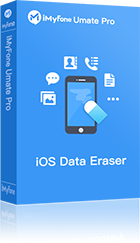Apple often talks about things that only it can do due to its unparalleled combination of software, hardware, and services. However, iCloud leaks of celebrity photos as well as some recent related issues make it pretty clear that iCloud is one of the biggest challenges that the tech giant is still facing.
iCloud Leaks of Celebrity Photos
On 31st August, 2014, numerous private and nude photos of various female Hollywood celebrities including Jennifer Lawrence, Kate Upton, and Ariana Grande, were leaked and posted on imageboard 4chan and later distributed on other websites. The photos were obtained from iCloud accounts of celebrities and this leak is considered as one of the biggest celebrity leaks in the history.

The Influence of This Issue
Since the iCloud celebrity photos leak scandal, users’ faith in iCloud’s security has significantly diminished. The biggest celebrity photo leak in the history was caused by targeted phishing attacks by hackers. By doing so, they were able to break into celebrities’ iCloud accounts and leak the information stored on them.
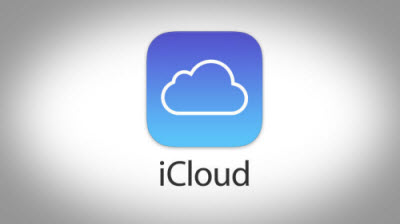
Since the leak, iCloud users have been reminded time and time again to be attentive and careful to received emails, letters, etc. The fact that iCloud users are still reminded to be careful shows that famous or not, users are not safe and hackers can still steal their personal information and cause problems. Hence, certain precautions are necessary.
What's the Response of Apple?
In response to the iCloud celebrity photo leaks, the CEO of Apple Tim Cook stated in an interview that the company has planned to take additional steps in order to protect the security and privacy of iCloud users in the future. According to him, notifications will be displayed every time a user is logged into iCloud via a web browser as well as whenever data is restored to a device via iCloud. Furthermore, he said that Apple will encourage the use of two-factor authentication in future versions of its operating systems and software.
Another Event Similar to iCloud Leak of Celebrity Photos
Recently, another serious incident similar to iCloud celebrity photos leak has happened. iCloud account of a user with a surname Qin was allegedly hacked by an Apple employee after the two got into an argument.
The argument didn’t end there however. According to Qin, the Apple employee called him back later that night and told Qin to check his three email accounts linked to iCloud. In those emails, that same employee asked Qin to add him on messaging app QQ and said that if didn’t add him within an hour then he would leak his personal information stored on his iCloud account. The employee told him that he had used his position to copy Qin’s personal information.
Although Qin added that Apple employee on QQ, but the friend request never got accepted. It is still unclear how Qin’s iCloud account was hacked or how the employee obtained his email addresses. This entire incident has iCloud users feeling upset and frightened.
How to Avoid Privacy Leak on iPhone/iPad?
Protecting your privacy should be one of your top concerns when using online services like iCloud. The consequences of a privacy leak are devastating. That’s why it is recommended that you take necessary measures to avoid it. iMyFone Umate Pro is an iPhone data eraser software that you can use to ensure maximum privacy protection. By using its advanced features, you can erase your private and sensitive information from your iDevice and have peace of mind knowing that no one will be able to recover it.
A great amount of professional software review sites recommend iMyFone Umate Pro to protect privacy, including MacWorld, iPhoneinCanada, APPKED, etc.
iMyFone Umate Pro Key Features:
- Erases data permanently so that no recovery software can recover it.
- Erases All types of data on your iDevice, including data from third-party apps.
- Erase Private Data mode is helpful in permanently erasing your private and sensitive information from your iDevice.
How to Erase Private Data Using iMyFone Umate Pro?
Step 1. Connect your iDevice to your PC and launch Umate Pro.
Step 2. From the software’s interface, click on Erase Private Data mode and then click the Scan button.
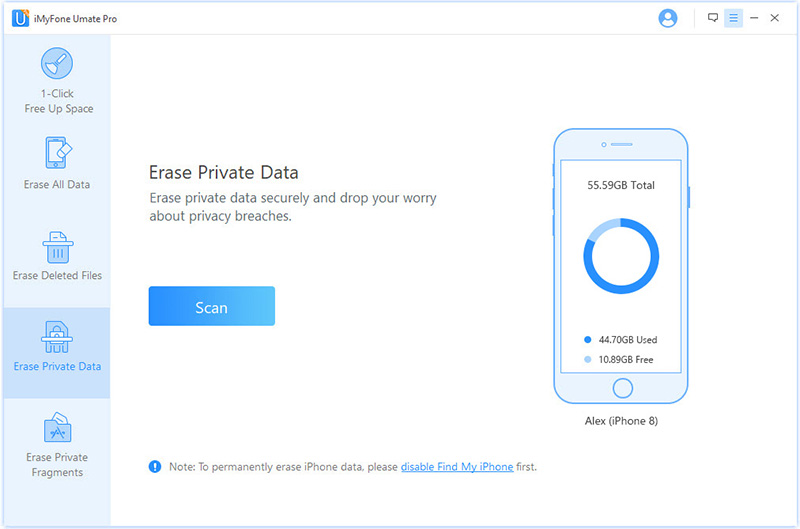
Step 3. Once your private files are displayed after scanning, make your desired selections and then click Erase Now button.
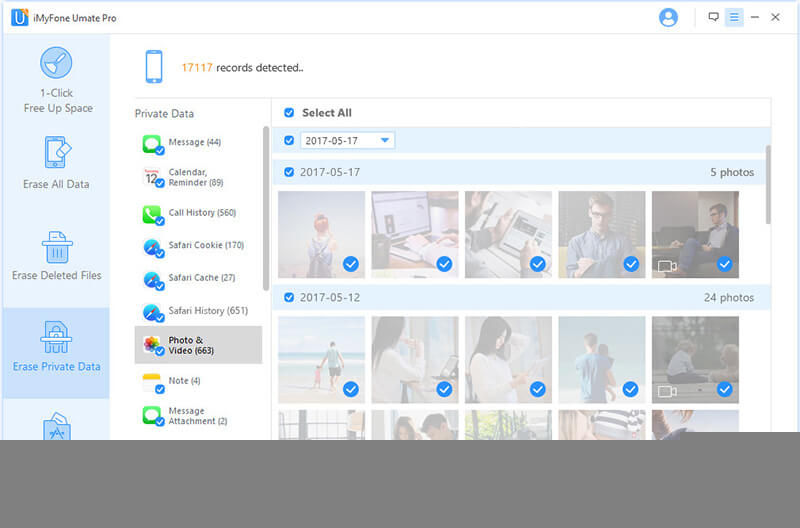
Step 4. Now you will need to select the Security Level of deletion. Choose from Low, Medium, and High and then click OK.
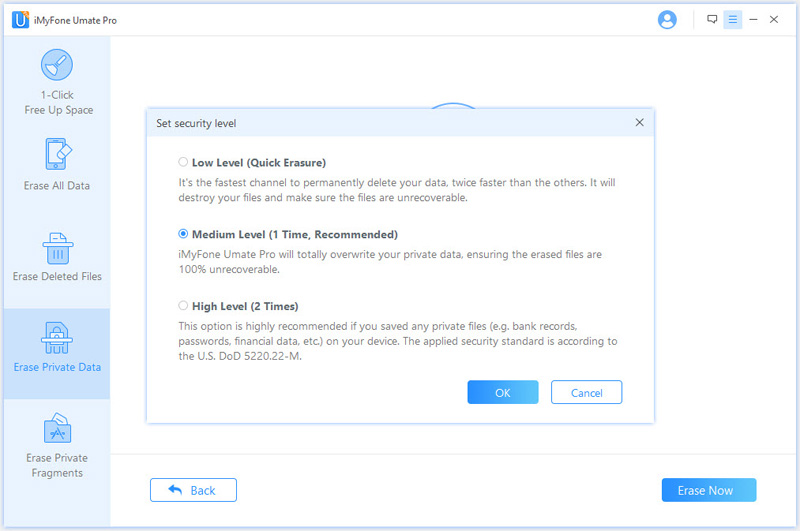
Step 5. Type ‘delete’ in the provided textbox and then click the Erase Now button. Your selected private data will now start erasing.
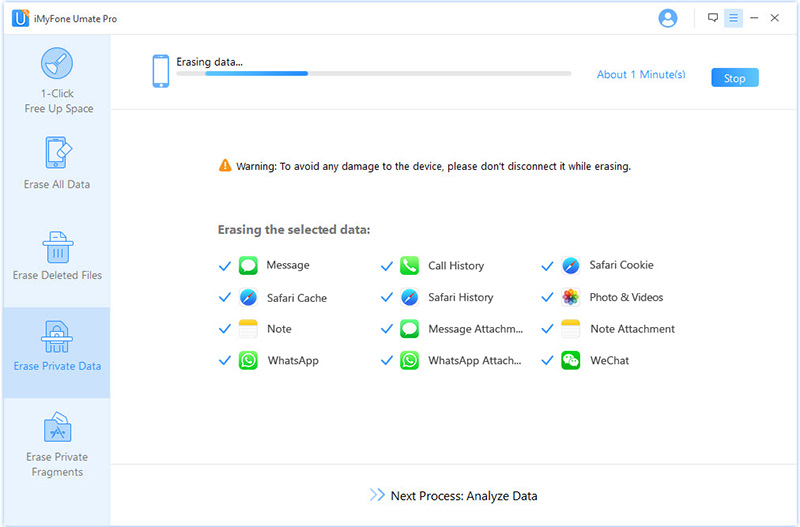



















 March 12, 2024
March 12, 2024

